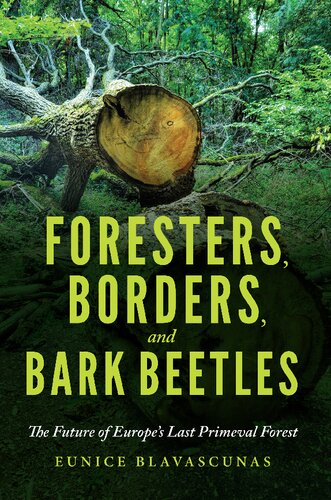

Most ebook files are in PDF format, so you can easily read them using various software such as Foxit Reader or directly on the Google Chrome browser.
Some ebook files are released by publishers in other formats such as .awz, .mobi, .epub, .fb2, etc. You may need to install specific software to read these formats on mobile/PC, such as Calibre.
Please read the tutorial at this link: https://ebookbell.com/faq
We offer FREE conversion to the popular formats you request; however, this may take some time. Therefore, right after payment, please email us, and we will try to provide the service as quickly as possible.
For some exceptional file formats or broken links (if any), please refrain from opening any disputes. Instead, email us first, and we will try to assist within a maximum of 6 hours.
EbookBell Team

4.0
56 reviewsIn Europe's last primeval forest, at Poland's easternmost border with Belarus, the deep past of ancient oaks, woodland bison, and thousands of species of insects and fungi collides with authoritarian and communist histories.
Foresters, biologists, environmentalists, and locals project the ancient Białowieża Forest as a series of competing icons in struggles over memory, land, and economy, which are also struggles about whether to log or preserve the woodland; whether and how to celebrate the mixed ethnic Polish/Belarusian peasant past; and whether to align this eastern outpost with ultraright Polish political parties, neighboring Belarus, or the European Union. Eunice Blavascunas provides an intimate ethnographic account, gathered in more than 20 years of research, to untangle complex forest conflicts between protection and use. She looks at which pasts are celebrated, which fester, and which are altered in the tumultuous decades following the collapse of communism.
Foresters, Borders, and Bark Beetles is a timely and fascinating work of cultural analysis and storytelling that textures its ethnographic reading of people with the agency of the forest itself and its bark beetle outbreaks, which threaten to alter the very composition of the forest in the age of the Anthropocene.